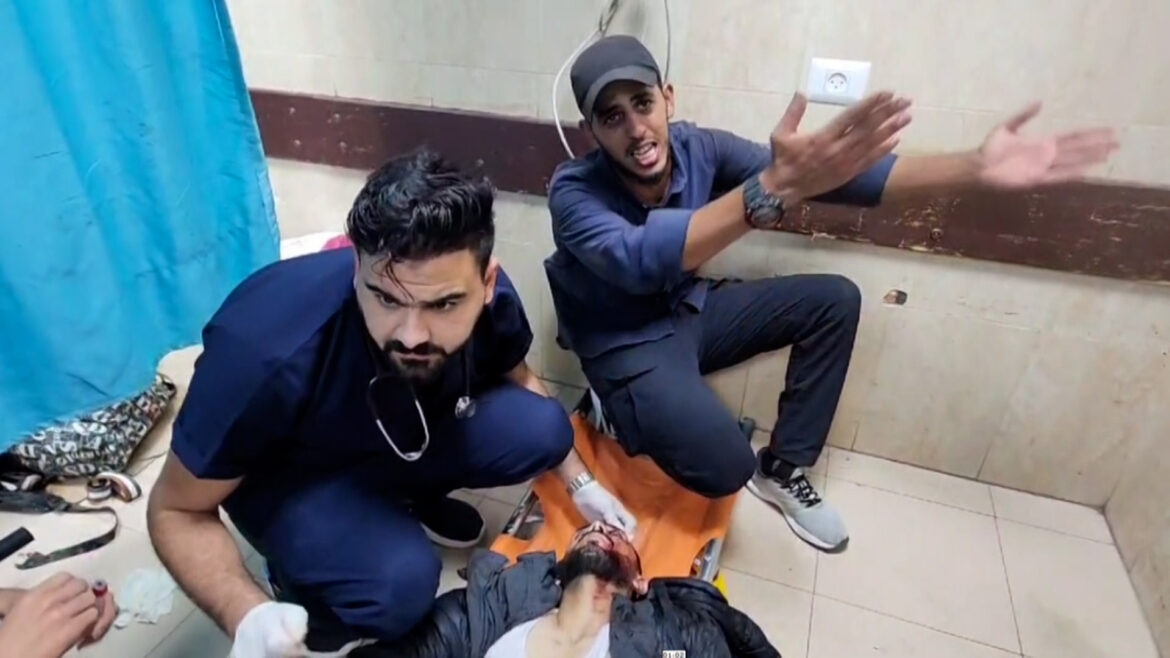South Africa filed a complaint before the International Court of Justice accusing Israel of committing acts of genocide in its aggression against the Gaza Strip. What can the court do? Why South Africa?
What can a court of justice do?
South Africa has asked the International Court of Justice to issue “interim measures”, which are urgent judicial orders to apply while the court considers the merits of the case, which could take years.
“At the precautionary measures stage, the court will not determine whether genocide is taking place in Gaza,” explains Cecily Rose, assistant professor of international law at Leiden University.
Rose added in a statement to Agence France-Presse, “The court will be satisfied with determining whether there is a risk of irreparable harm to the rights contained in the Convention on the Prevention of the Crime of Genocide, especially the right of the Palestinians in Gaza to be protected from acts that threaten their existence as a group.”
Pretoria asked the court to issue several orders, including that Israel “immediately suspend” its attack in the Gaza Strip, put an end to displacement, allow humanitarian aid to arrive, and preserve evidence.
The International Court of Justice could impose the measures requested by Pretoria, reject them or issue other orders entirely, and it may also decide that it is not the competent authority in this case.
What then?
Decisions issued by the International Court of Justice (the UN’s highest judicial body) are final and cannot be appealed by states, but the court has no means of enforcing them.
Eric de Brabander, professor of international law at Leiden University, stresses that “the limitations of international justice must be accepted. It works, but its effectiveness requires political will that is not always available.”
For example, the International Court of Justice ordered Russia to stop its invasion of Ukraine a month after the start of the war in February 2022.
After the court decides whether to issue urgent interim measures, it will consider the substance of the case, namely South Africa’s accusation that Israel violates the Convention on the Prevention of the Crime of Genocide.
Céline Bardet, an expert in international law and war crimes, believes that any decision will have “symbolic connotations.”
She explained to Agence France-Presse, “This will remind the world that states are also responsible, and this is important,” adding, “This may also allow states to take measures following the decision by imposing sanctions, for example.”
What are the deadlines?
The International Court of Justice is not characterized by the speed of its decisions, but requests for “provisional measures” take priority over all other cases, and the decision may come relatively quickly, that is, within weeks.
On the other hand, a decision on the substance of the case may take several years.
The slowness of international courts has begun to pose problems and they are no longer “in line with today’s world,” according to Bardet.
Why South Africa?
South Africa and Israel are signatories to the Convention on the Prevention and Punishment of the Crime of Genocide, which was adopted in 1949 in response to the extermination massacres against Jews during World War II.
Each signatory state has the right to pursue another state before the International Court of Justice in the event of disagreement over the “interpretation, application or respect” of the rules aimed at preventing acts of genocide.
South Africa said that it “is fully aware of the extent of responsibility for initiating prosecutions against Israel for violating the Convention on the Prevention of the Crime of Genocide.”
She stressed that “the circumstances could not be more urgent,” considering that “Israel is waging a military campaign of particular ferocity,” but it considers that any armed attack “no matter how dangerous” cannot justify violating the agreement.
South Africa has long supported the Palestinian cause, as the ruling African National Congress in Pretoria often links this issue to its struggle against the apartheid regime, and diplomatic relations between Israel and South Africa were severed because of this.
What other issues?
The International Court of Justice considers disputes between states, and is often confused with the International Criminal Court, which is also based in The Hague. It prosecutes war crimes and crimes against humanity committed by individuals.
The Prosecutor of the International Criminal Court, Karim Khan, launched an investigation into the events in Gaza, and pledged to “intensify” efforts.
Five countries – including South Africa last November – requested an investigation from the International Criminal Court regarding the conflict in the Gaza Strip, and Khan said that his team collected a “large number” of evidence.
The United Nations asked the International Court of Justice to consider the legal ramifications of Israeli operations in the Palestinian territories.
In this context, the court will issue an advisory opinion that will not include the military operation that followed last October 7.



